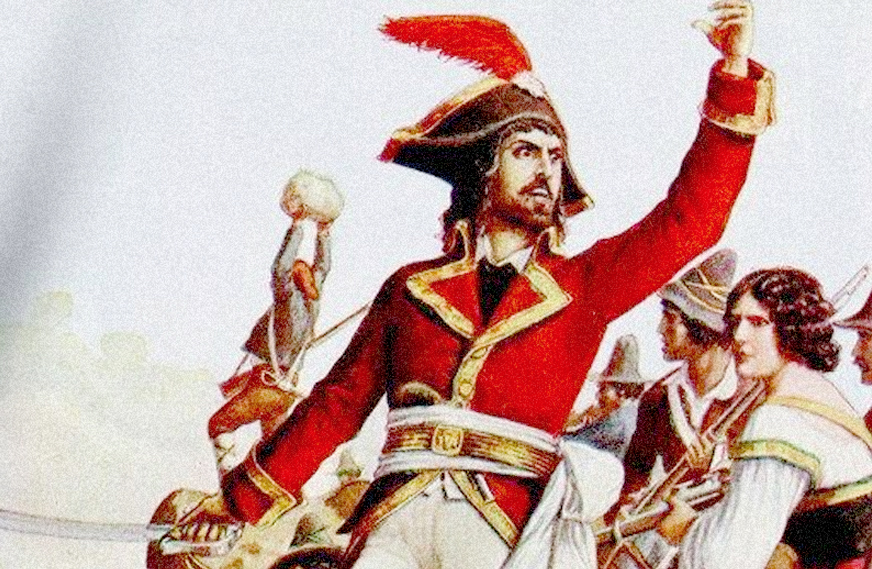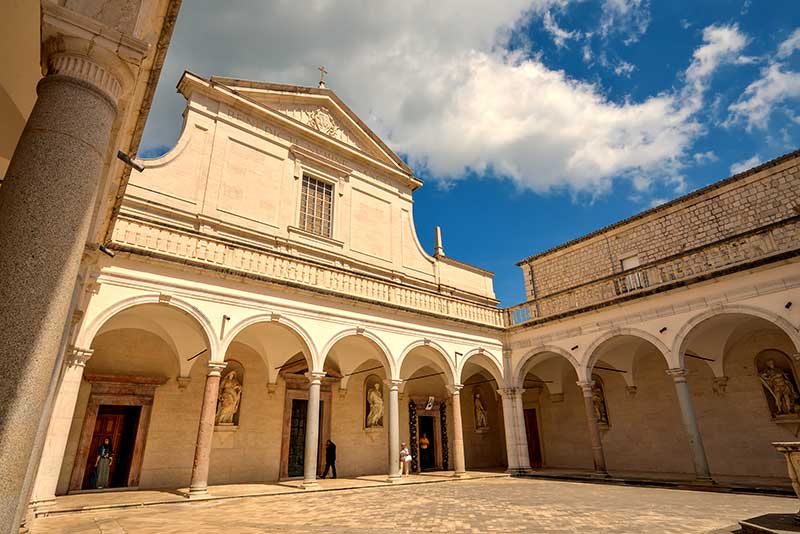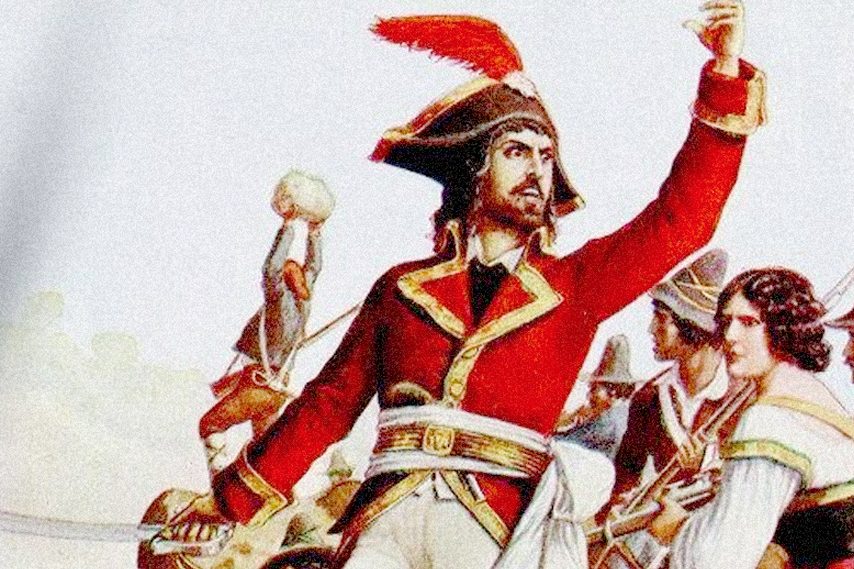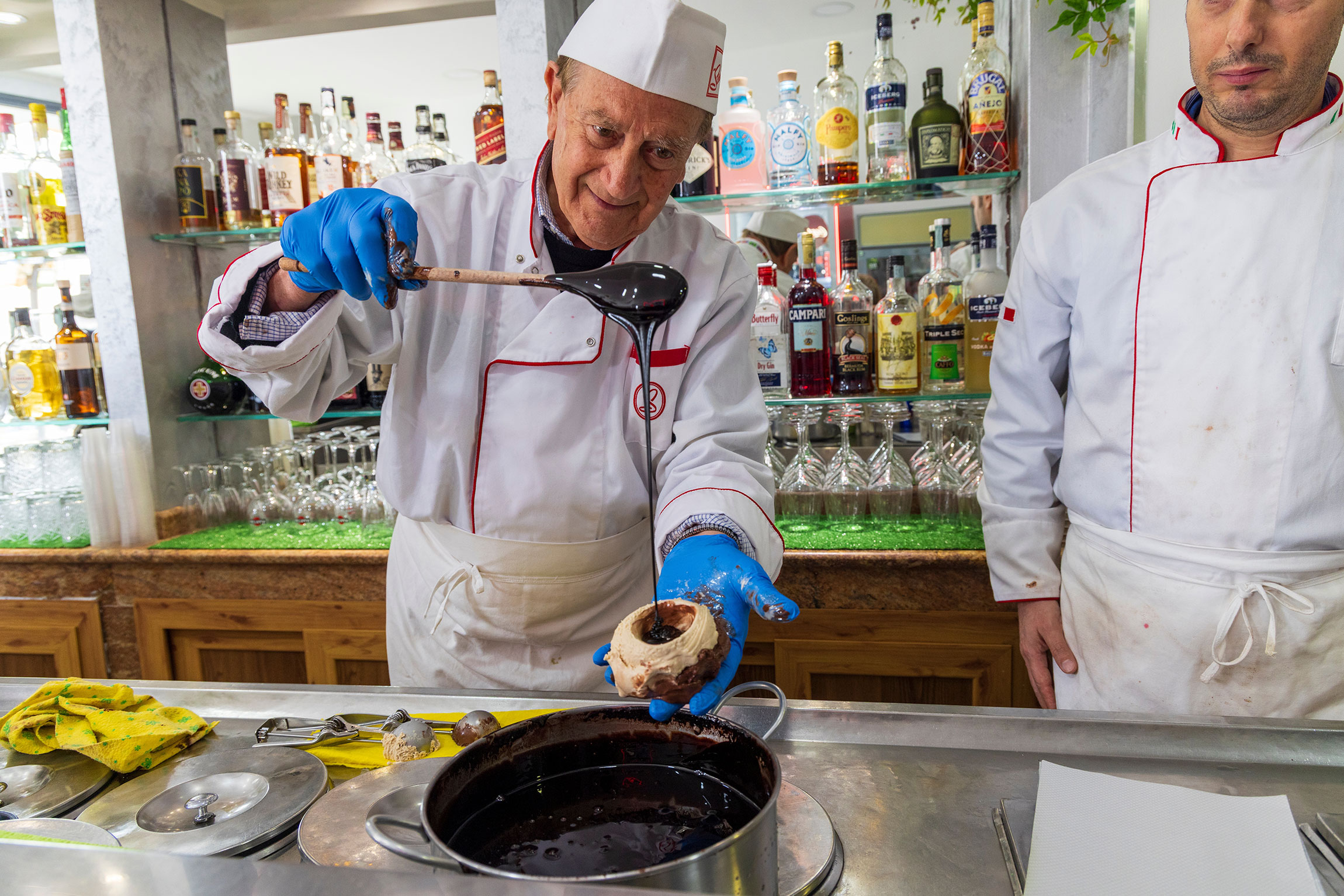The French Revolution began as an uprising of the people against the tyranny of the ancien regime, but by 1798 Napoleon had risen to power and was on a campaign of conquest throughout Europe. While some hailed the arrival of the French as bringers of the ideals of freedom and democracy, the reality was often something of the opposite. Thus, following the conquest of the Italian peninsula they set up a de facto colony in the south, the Parthenopaean Republic, which was a republic in name only. The oppression, which included looting, rape and other war crimes, was met with stiff opposition by the Italians, who embarked on what became a full blown guerilla war. The invaders responded with a reign of terror. For example, after two French soldiers were killed near the village of Itri, north of Naples, they retaliated by atrocities, including a massacre of approximately 60 innocent people. Among the victims was the father of Michele Pezza, who was to become the main leader of the resistance.
Born in 1771 into a relatively well to do family, he was quite mischievous as boy, which earned him the nickname “Fra’ Diavolo”, brother devil. He eventually became a courier for the royal postal system, and thus gained a detailed knowledge of the countryside, which would prove invaluable in the war. He joined the Neapolitan army in 1797 and was made a sergeant the following year, when his first encounters with the invaders occurred.
After a defeat, he was able to escape, recruited a force of guerrillas, and got the remaining Neapolitan troops out of an entrapment. The French soon conquered the entire mainland part of the Kingdom of Naples, and the royal family fled to Sicily, where they set up a government in exile. With the help of the British they sent an army of 5,000 troops to fight back. The ranks were soon swelled by brave people from all walks of life, including women and children, and became known as La Armata Cristiana della Santa Fede, the Christian Army of the Holy Faith. Pezza became one of the main leaders, personally recruiting 4,000 more fighters. He waged an aggressive guerrilla war against the French, attacking far and wide and disrupting supplies and communications. Spurred on by the brutal misdeeds of the enemy, he showed no mercy. A hefty reward was offered for his capture, dead or alive.
In June, 1799, the capital city of Naples was taken by the Italians, and by autumn the French were driven out of the rest of the Kingdom. The fighters moved north, and soon Rome was freed. Following the victory, Pezza was rewarded by being made a colonel in the regular army, and granted the title of Duke. He married and settled down to a peaceful family life.
The peace ended in 1806 when the French again invaded with a force of over 30,000. Outnumbered almost three to one, the Neapolitan army was no match for them. They took most of the Kingdom, and the royal family again had to take refuge in Sicily. Pezza and the guerrillas fought back but were unable to achieve any decisive victories. He fled to Sicily, recruited more fighters, and joined a British force to assist in the defense of Gaeta, which had held out against the enemy. Pezza and the guerrillas fought bravely, but were outmanned and suffered defeat. He managed to escape, and then conducted a series of raids along the coast.
Following a British victory in Calabria, Pezza and his force landed there, joined the local freedom fighters, and laid siege to the French position at Cosenza. Victory was at hand, but the French took Gaeta and sent 10,000 troops from there to the battle. The Italians made a brave stand at Lauria, but were slaughtered. Unfortunately the British decided to withdraw. Pezza continued to fight, despite the odds against him. A huge price was again placed on his head, which he scoffed at.
He moved on Gaeta and with a force of just 300 was able to cause considerable trouble for the enemy. Determined to get him, the French managed to surround his position and attacked. Most of his men were killed in action or executed after being taken prisoners, but he managed to get away. Fleeing to Abruzzi, he joined up with other fighters and soon lead a small army of 2,000. A much larger enemy force surrounded them; most of the freedom fighters were killed or captured; Pezza, though wounded, again escaped, but was betrayed shortly after and taken prisoner on November 1, 1806.
Recognizing his military genius, the French offered him a vast sum of money if he would join them, but he chose death instead and was executed shortly afterwards. The Italians fought on despite overwhelming odds, enduring massacres and other atrocities until the French finally withdrew in 1815. Michele Pezza lives on as a folk hero, one of the great champions of liberty.






























